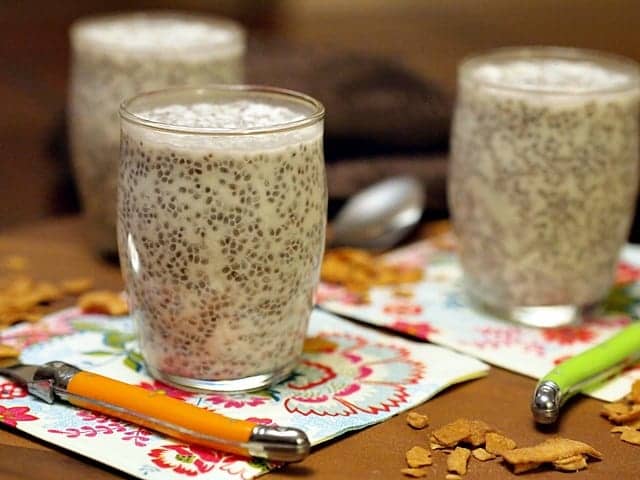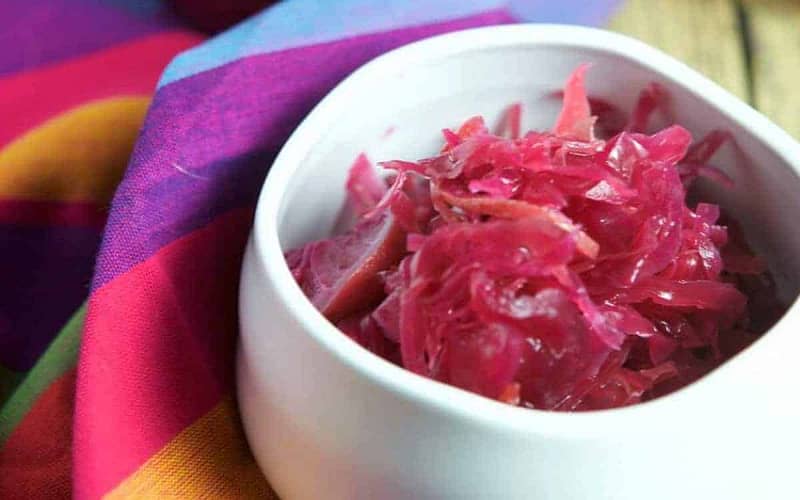Dietary fiber and probiotics are essential to a healthy microbiome and a critical part of fixing leaky gut syndrome and autoimmune disease. When the belly is troubled, all else follows.
The gut is known as “the second brain” or “gut-brain” for good reason. You have almost as many neurons in your belly as you have in your head!
The microbiome is the microbial community living inside your intestinal tract and is absolutely essential to your life force.
The microbiome is critical in the absorption of nutrients, immune response, thyroid hormone conversion (T4 to T3), sex hormone balance, and production of neurotransmitters, such as dopamine and serotonin, primarily produced by the brain.
Probiotics and Prebiotics aka Dietary Fiber
“Probiotics” describes the friendly, necessary microbes that you hopefully get from your mother as you journey into the world. After that, your microbiome will be influenced by every factor in your life: the food you eat, the drugs you take, the environment you live in, the people you are in contact with.
“Prebiotics” means fiber.
There are two types of dietary fiber: Soluble and Insoluble.
Soluble fiber, which is found in foods like cucumbers, okra, berries, seeds, and nuts is slimy, mucousy stuff that forms a gel-like mass in the gut.
Soluble fiber literally acts as a sealant inside the gut, helping to prevent and heal leaky gut syndrome which drives inflammatory and auto-immune disease.
Additionally, it slows down glucose uptake resulting in lower blood sugar and insulin levels.
Soluble fiber undergoes fermentation in the gut, is converted to short-chain fatty acids, and becomes an important food for the microbes of the microbiome, and cells of the body.

My personal favorite soluble fiber is chia seed.
Insoluble Fiber acts more like scrub-brushes. Think celery and dark, leafy greens like spinach, kale, and arugula. In addition to absorbing water and adding bulk to the intestinal contents, it helps to scrub and clean the inside of the intestinal walls.
If you are constipated, insoluble fiber helps to move the bowel by drawing water and bulk into the intestine. If you have a loose stool, soluble fiber helps to bind things together.
Together, soluble and insoluble dietary fiber form habitat for the microbiome to live and support the protective, mucous barrier inside the gut wall.
Both soluble and insoluble fiber undergoes fermentation in the gut, are converted to short-chain fatty acids, and becomes an important food for the microbiome, and cells of the body.
Additionally, the compounds fiber produce increases the number of regulatory T-cells, which support and regulate your immune system, prevent auto-immune responses, and improve brain function
Without adequate dietary fiber, the beneficial bacteria of the microbiome go hungry, starve, and are easily washed out of the gut.
Plant scientist, Kerry Bone, says that maintaining a healthy amount of pre-biotic in the gut is even more important than supplementing with probiotics.
Adequate fiber and a healthy gut are essential to health
Without them, the immune system will falter, the gut wall will break down, and leaky gut syndrome will ensue. People with leaky gut syndrome suffer from widespread inflammation and associated diseases such as arthritis, skin problems, pelvic inflammatory disease, Hashimoto’s ,..the list is long and miserable.
Healthy soil contains microbes healthy for the gut. This is why it is important to eat plants grown on healthy, living soil. In fact, I recommend that you don’t wash these vegetables too much!
Leave a little dirt on!
The microbes that populate a healthy microbiome are essentially the same as those that populate healthy soil; “soil based organisms“. Eating these microbes is one way of getting them on board. Just working in the soil of a healthy garden is another way. The microbes take to your skin and are borne up into your respiratory tract as you breathe. They make you feel good.
The uplifting effects of working in a garden are real!
If you are feeling unwell, anxious, depressed, or low energy; get outside and get your hands in some good, healthy dirt!
Another excellent way to enhance your microbiome is to eat lacto-fermented vegetables such as live sauerkraut. Making these food products is fun and easy. If you decide to buy them in a store, make sure they come out of a refrigerator! Canned, un-refrigerated sauerkraut, etc. is dead.
More about Lacto-fermentation benefits and this great recipe

BEWARE! It isn’t unusual for a new dietary fiber source to can cause intestinal gas! Some types of fiber are more likely to do this than others. One of the worst belly aches I ever had was from eating Jerusalem artichokes!
I’m in good company; Lewis and Clark had a similar experience after eating “roots” (later determined to be Jerusalem artichokes) provided them by native Americans when they were nigh to starving. Their journals report that they had such tremendous “wind of the intestines” that they could barely stand to be in the same tent together overnight. Use common sense. Eat a little first and slowly increase.
How do you know if you are getting enough fiber?
If you are eating some berries, plenty of dark, leafy greens, nuts, and other vegetables (French-fries don’t count!) at least twice per day, you should be getting enough dietary fiber.
If you have loose stool, soluble fiber can firm things up, so add some.
If you have constipation, insoluble fiber can loosen things up, so try adding some!
If you are seeking to lower your blood sugar, extra soluble fiber can produce significant results.
Experiment!
To add extra soluble and insoluble fiber combo to your diet; soak 1-6 tablespoons of chia, flax, or psyllium seeds in water overnight and drink them down with your water allotment during the course of the next day.
If you need help sorting out your gut, give us a call and make a life-changing appointment!
530-342-8464.

